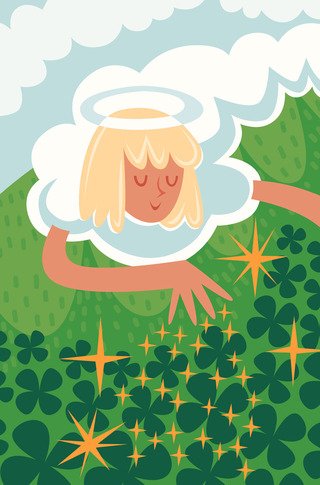Ireland - Éire

Ireland - Éire
Ireland has been known historically as:
Ériu (From which derived Éire)
Inisfail (Used by the Tuatha Dé Danann, it means the Island of Destiny)
Hibernia (First used to refer to Ireland by Julius Caesar)
Scotia (A term used by various Roman and other Latin writers. It is believed by some that the Scoti were Gaelic-speaking people from Ireland who settled in western Scotland some time around the 6th century)
Island of Saints and Scholars (Insula Sanctorum or the Island of the Saints and Insula Doctorum or the Island of the Learned are names used by various Latin writers. Hence the modern-day poetic description of the island as the "Island of Saints and Scholars")
The Emerald Isle (A poetic name for Ireland)
The English name for Ireland comes from the name Éire and the Germanic (Old Norse or Old English) word land. The modern Irish Éire evolved from the Old Irish word Ériu, which was the name of a Gaelic goddess.
Ériu is generally believed to have been the matron goddess of Ireland, a goddess of sovereignty, or simply a goddess of the land. The origin of Ériu has been traced to the Proto-Celtic reconstruction:
Φīwerjon - (nominative singular Φīwerjū - Pre-Proto-Celtic -jō)
This suggests a descent from the Proto-Indo-European reconstruction:
piHwerjon - likely related to the adjectival stem piHwer - (cf. Sanskrit pīvan, pīvarī and pīvara meaning "fat, full, abounding"). This would suggest a meaning of "abundant land".
This Proto-Celtic form became:
Īweriū or Īveriū in Proto-Goidelic - It is highly likely that explorers borrowed and modified this term. During his exploration of northwest Europe (circa 320 BC), Pytheas of Massilia called the island Ierne (written Ἰέρνη). In his book Geographia (circa 150 AD), Claudius Ptolemaeus called the island Iouernia (written Ἰουερνία). Based on these historical accounts, the Roman Empire called the island Hibernia.
The evolution of the word would follow as such:
Proto-Celtic - Φīwerjon (nominative singular Φīwerjū)
Proto-Goidelic - Īweriū or Īveriū
Old Irish - Ériu
Modern Irish - Éire
Éireann - Éirinn - Erin
Taken from Wikipedia:
While Éire is simply the name for the island of Ireland in the Irish language, and sometimes used in English, Erin is a common poetic name for Ireland, as in Erin go bragh (Ireland Forever). The distinction between the two is one of the difference between cases of nouns in Irish. Éire is the nominative case, the case that (in the modern Gaelic languages) is used for nouns that are the subject of a sentence, i.e. the noun that is doing something as well as the direct object of a sentence.
Erin derives from Éirinn, the Irish dative case of Éire, which has replaced the nominative case in Déise Irish (Gaeltacht area in County Waterford) and some non-standard sub-dialects elsewhere, in Scottish Gaelic (where the usual word for Ireland is Èirinn) and Manx (a form of Gaelic), where the word is spelled "Nerin," with the initial n- probably representing a fossilisation of the preposition in/an "in" (cf. Irish: in Éirinn, Scottish: an Èirinn/ann an Èirinn "in Ireland"). The genitive case, Éireann, is used in the Gaelic forms of the titles of companies and institutions in Ireland e.g. Iarnród Éireann (Irish Rail), Dáil Éireann (Irish Parliament).
There are some that believe the Irish Gaelic name for Ireland is Éireann or Éirinn (replacing Éire), and that the name derives from Scottish Gaelic. However, others argue that this does not follow modern standards of etymology:
ì (island) + thairr (west) + fónn (land), which together give ì-iar-fhónn (sounds like Éirinn), or "westland isle".
This is similar in meaning to the Norse name for Irish people: West Men.

Ireland is located to the west of Europe and therefore the inhabitants may have been known as "West men" to some. Many will debate the origins of the name, but the obvious connection to Ériu/Éire is hard to ignore...
So who is the goddess Ériu?
Ériu/Éire is the daughter of a mother goddess of the Tuatha Dé Danann, a supernatural race in Irish mythology. Tuatha Dé Danann is usually translated as "people of the goddess Dana or Danu", and also known by the earlier name Tuath Dé or "tribe of the gods".
Ériu was seen as the Goddess of Irish Sovereignty along with her sisters, Banba and Fódla. She has also been portrayed as the lover of Elatha, a prince of the Fomorians, the other supernatural race in Irish mythology. The Fomorians are often portrayed as enemies and opponents of the Tuatha Dé Danann, however, the relationship of the two tribes is complex and some of their members intermarry and have children.
There are also similarities of the deities in Irish mythology and that of deities in other cultures worldwide... Would comparing them make a good Steemit post?? Could be my next Steemit article perhaps :)
This post has been ranked within the top 80 most undervalued posts in the second half of Oct 14. We estimate that this post is undervalued by $9.71 as compared to a scenario in which every voter had an equal say.
See the full rankings and details in The Daily Tribune: Oct 14 - Part II. You can also read about some of our methodology, data analysis and technical details in our initial post.
If you are the author and would prefer not to receive these comments, simply reply "Stop" to this comment.
Well written and very informative. Thanks for sharing. It seems you have a good topic for your next post ;)
delete
You learn something new everyday.